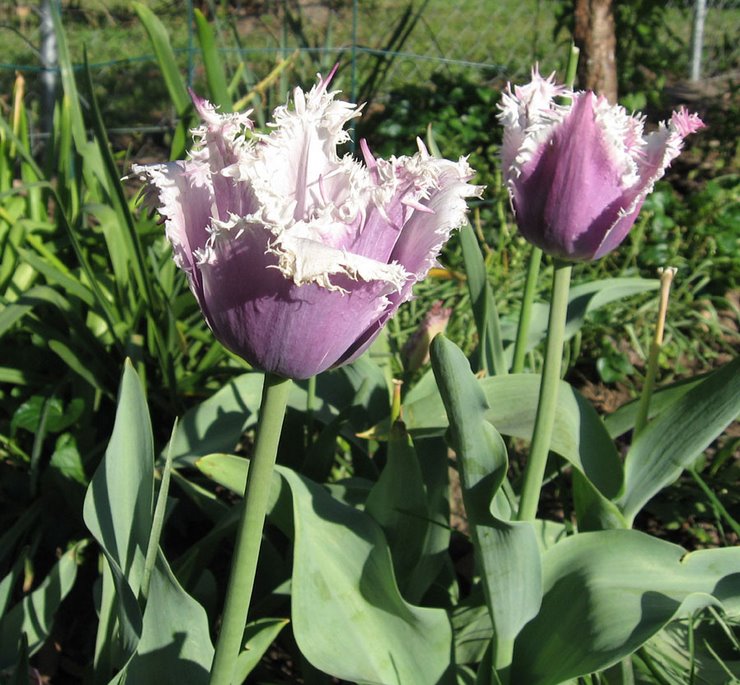 |
| Annual sweet peas |
Annual
Full sun or light shade, 4-6' tall
The annual sweet pea is a fragrant flower available in many colors and varieties. Some are cascading, and fit well in hanging containers; others are climbers that cover a fence. Some of the newer varieties are less fragrant than the traditional ones.
The annual sweet pea does best in cool summer areas, and will die in summer heat. Where summers are hot, and winters relatively mild, the best way to enjoy them is to plant in the fall in loose soil in a sunny spot. In the fall they'll develop a root system, but have little top growth, then in spring as days get longer, the vines will begin to grow. If your winters are dry, don't forget to give them some water from time to time. In cold winter areas, plant in the spring as soon as the ground is no longer hard. I often start mine extra-early indoors, and this year used winter sowing to get an early start.
 |
| Perennial sweet pea |
Because I know that sweet peas won't survive very long into the summer here, I plant it in mixed containers with morning glories, that bloom later in the summer, and a variety of shorter flowers.
There is also a perennial sweet pea vine. It doesn't have the delightful aroma of the annual sweet pea, but it does thrive in heat, and keep blooming all summer long. The darker pink one in particular attracts hummingbirds.
 |
| Garden peas |
- - - - - - - - - - - - - - - - - - - - - - - - - -
At the top of posts about plants, you will notice the "allergy index scale" rating for each plant I discuss. The Ogren Plant Allergy Scale rates the allergy potential of a plant, but of course does not indicate whether you or anyone else actually is allergic to it. In this scale, 1 is the best rating, with the least potential to cause allergic reactions; and 10 is the worst rating, with the most potential to cause allergic reactions. Because sweet peas are rated 3, which is quite moderate, I go ahead and plant lots of sweet peas in my garden. The intense fragrance of some sweet peas can bother people who are sensitive to strong odors.

No comments:
Post a Comment